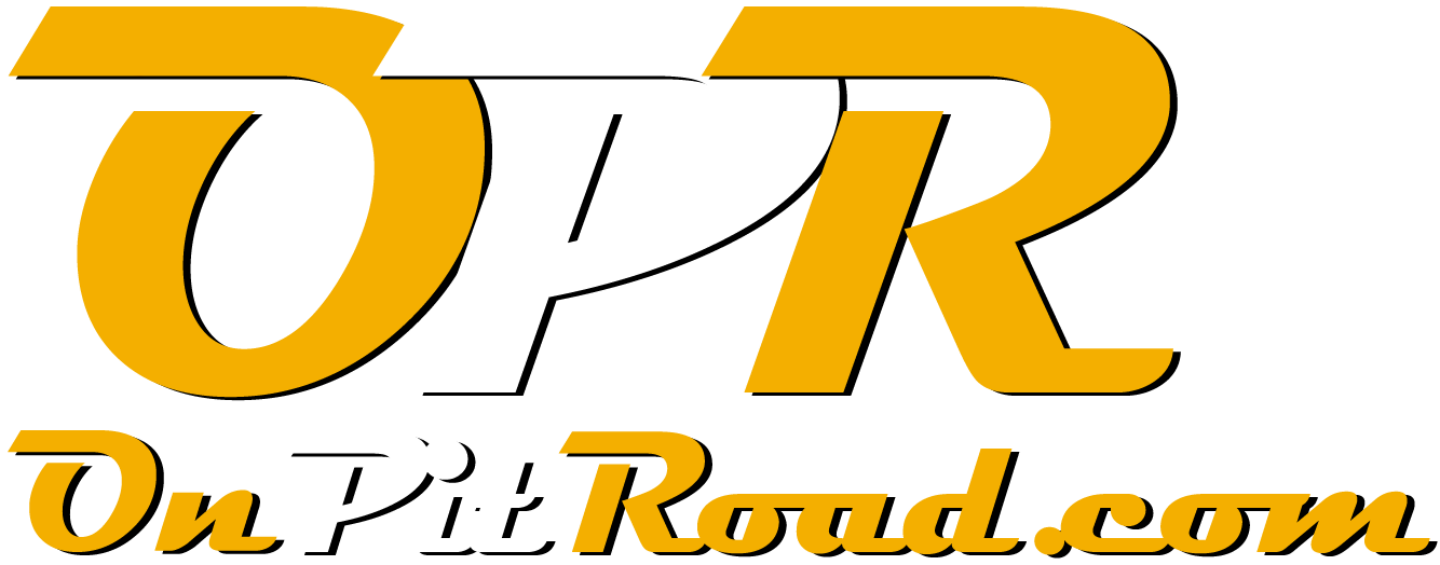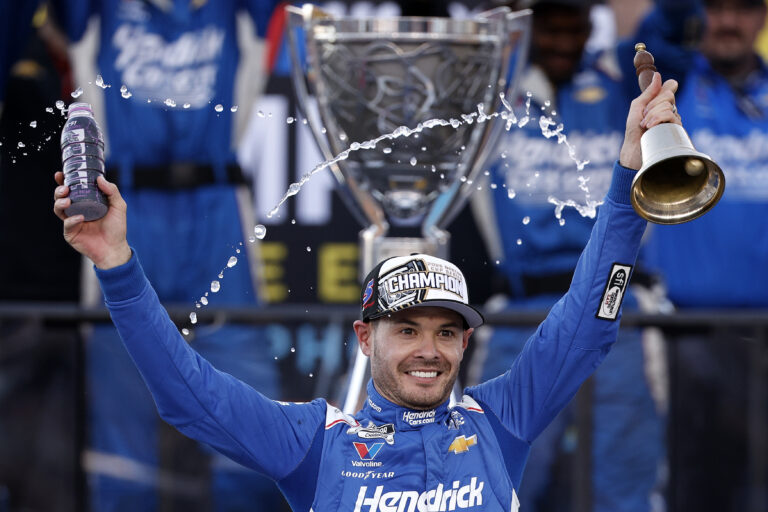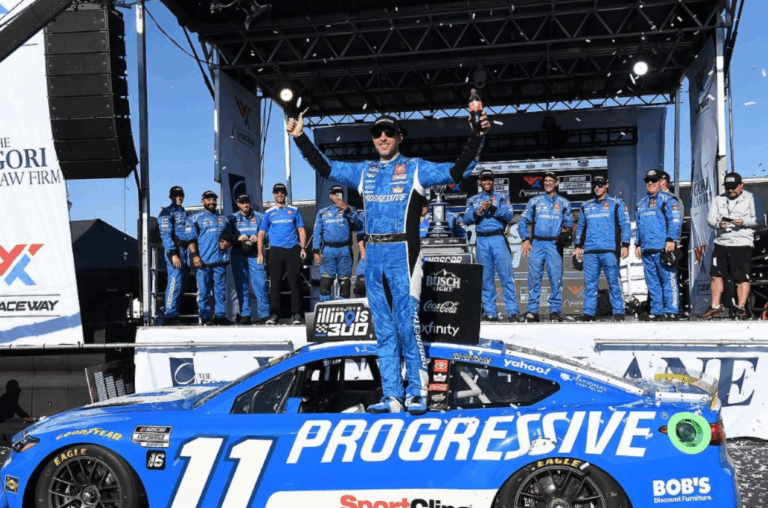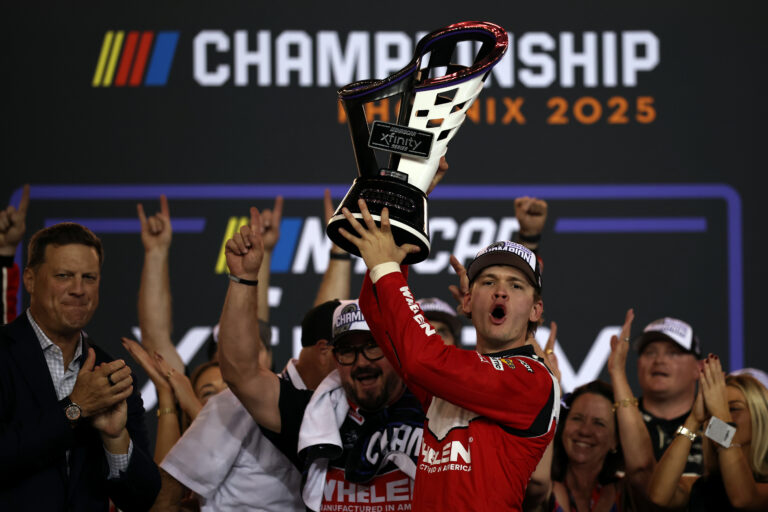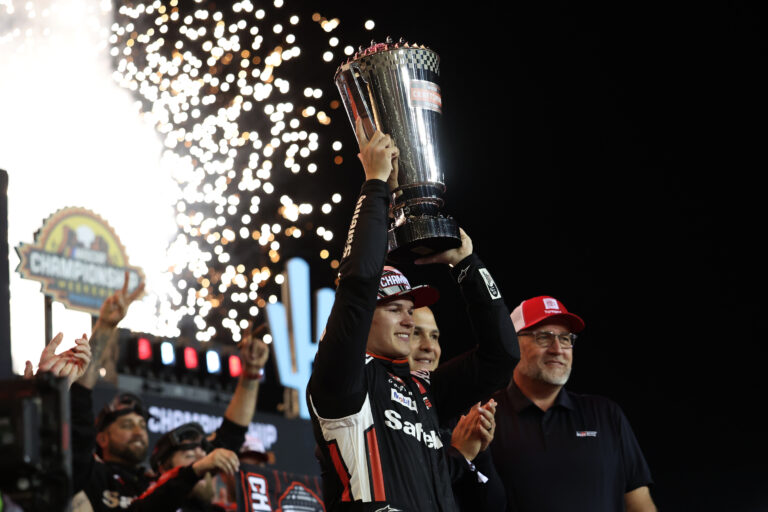By Brody Jones
One of the more recent stories in NASCAR has been regarding the Extenze sponsorship and the fact that they now are facing not one, but two law-suits from two different teams. Extenze came into NASCAR this past season backing Kevin Conway and put him in a Front Row Motorsports car, where, under the alleged terms of the contract, the Extenze car had to be in the top 35. Conway and Extenze got shuffled to all three Front Row Motorsports teams just to keep them in the top 35. At the time of the Michigan race, when it became abundantly clear to car owner Bob Jenkins that Conway couldn’t keep his cars locked in, he replaced him with a more experienced driver.
The Extenze people would not stand for this, so they took their money and went to Robby Gordon Motorsports. Things got so bad there that Robby drove the car himself in a few late-season races and Extenze agreed to pay Gordon for those races. Only problem was Gordon never got the money. So now Front Row Motorsports and Robby Gordon Motorsports have filed law-suits against Extenze. Not the ideal way you want your product to get media attention, now is it?
Sadly, this is not a new trend in NASCAR. Far from it. Take the following examples in consideration as to why NASCAR might need to consider a sponsorship black-list. The first example was the saga of the Big Daddy’s BBQ Sauce company based out of Yukon, Oklahoma. They came into NASCAR on board with long-time NASCAR team owner Junie Donlavey in time for the 2000 season with NASCAR All-Pro veteran Mike Harmon set to run for rookie-of-the-year honors. The relationship was doomed from the start, with Big Daddy’s BBQ Sauce not paying Donlavey his money on time (or not at all). The team went to Daytona and it resulted in an ugly debacle in the middle of Speedweeks with Harmon and Big Daddy’s BBQ Sauce finally angering Donlavey to the point that he pulled the driver and sponsorship decals off of his car. Donlavey’s organization never really recovered from this fiasco. The same thing happened to Larry Hedrick’s NASCAR team a year or so later when Big Daddy’s BBQ again failed to pay sponsorship money to the team, causing it to shut down. Other victims of Big Daddy’s BBQ Sauce include Davey Hamilton in the Indy Racing League, South Boston Speedway, and Henderson Motorsports in the NASCAR Busch Series.
Another more-recent example of the case for a sponsorship black-list includes the saga of the Rockford-Montgomery Labs 360 OTC hangover product. They came into motorsports with a bang, sponsoring Jeremy Mayfield in the Sprint Cup Series and Tyler Walker in the Craftsman Truck Series (ironically, both drivers would later fail drug tests mandated by NASCAR.), not to mention they had committed to sponsoring Morgan-McClure Motorsports at one point in the Sprint Cup Series and they were the title sponsor of the World of Outlaws Late Model series. Much like Big Daddy’s BBQ Sauce, the 360 OTC people did not honor their financial commitments and were sued more times than anyone could count before leaving the world of motorsports with scarcely a whimper.
The way Extenze is going, they may very well find themselves on a NASCAR black-list if they keep getting sued like this. And the sad thing of it all is the smaller teams, the ones who desperately need the sponsorship most, are the ones who find themselves the victims of these fraudulent sponsorships. Companies like those listed need to be kept out of the sport because they do more harm to motorsports than they do good. Too many teams have been shut down due to a sponsor not fulfilling their end of the bargain, and perhaps the Extenze people need to get the “Get Out Of NASCAR. Do Not Pass Go. Do Not Collect $200″ card. But where does the blame lie? On these companies that promise people the moon and give them nothing? Or does it lie with the team owners that don’t take a close look at the book-keeping of these questionable sponsors? No one really knows for sure, but mark my words, this isn’t the first, or last, time you will hear about this sort of thing in NASCAR.
The Extenze people would not stand for this, so they took their money and went to Robby Gordon Motorsports. Things got so bad there that Robby drove the car himself in a few late-season races and Extenze agreed to pay Gordon for those races. Only problem was Gordon never got the money. So now Front Row Motorsports and Robby Gordon Motorsports have filed law-suits against Extenze. Not the ideal way you want your product to get media attention, now is it?
Sadly, this is not a new trend in NASCAR. Far from it. Take the following examples in consideration as to why NASCAR might need to consider a sponsorship black-list. The first example was the saga of the Big Daddy’s BBQ Sauce company based out of Yukon, Oklahoma. They came into NASCAR on board with long-time NASCAR team owner Junie Donlavey in time for the 2000 season with NASCAR All-Pro veteran Mike Harmon set to run for rookie-of-the-year honors. The relationship was doomed from the start, with Big Daddy’s BBQ Sauce not paying Donlavey his money on time (or not at all). The team went to Daytona and it resulted in an ugly debacle in the middle of Speedweeks with Harmon and Big Daddy’s BBQ Sauce finally angering Donlavey to the point that he pulled the driver and sponsorship decals off of his car. Donlavey’s organization never really recovered from this fiasco. The same thing happened to Larry Hedrick’s NASCAR team a year or so later when Big Daddy’s BBQ again failed to pay sponsorship money to the team, causing it to shut down. Other victims of Big Daddy’s BBQ Sauce include Davey Hamilton in the Indy Racing League, South Boston Speedway, and Henderson Motorsports in the NASCAR Busch Series.
Another more-recent example of the case for a sponsorship black-list includes the saga of the Rockford-Montgomery Labs 360 OTC hangover product. They came into motorsports with a bang, sponsoring Jeremy Mayfield in the Sprint Cup Series and Tyler Walker in the Craftsman Truck Series (ironically, both drivers would later fail drug tests mandated by NASCAR.), not to mention they had committed to sponsoring Morgan-McClure Motorsports at one point in the Sprint Cup Series and they were the title sponsor of the World of Outlaws Late Model series. Much like Big Daddy’s BBQ Sauce, the 360 OTC people did not honor their financial commitments and were sued more times than anyone could count before leaving the world of motorsports with scarcely a whimper.
The way Extenze is going, they may very well find themselves on a NASCAR black-list if they keep getting sued like this. And the sad thing of it all is the smaller teams, the ones who desperately need the sponsorship most, are the ones who find themselves the victims of these fraudulent sponsorships. Companies like those listed need to be kept out of the sport because they do more harm to motorsports than they do good. Too many teams have been shut down due to a sponsor not fulfilling their end of the bargain, and perhaps the Extenze people need to get the “Get Out Of NASCAR. Do Not Pass Go. Do Not Collect $200″ card. But where does the blame lie? On these companies that promise people the moon and give them nothing? Or does it lie with the team owners that don’t take a close look at the book-keeping of these questionable sponsors? No one really knows for sure, but mark my words, this isn’t the first, or last, time you will hear about this sort of thing in NASCAR.
